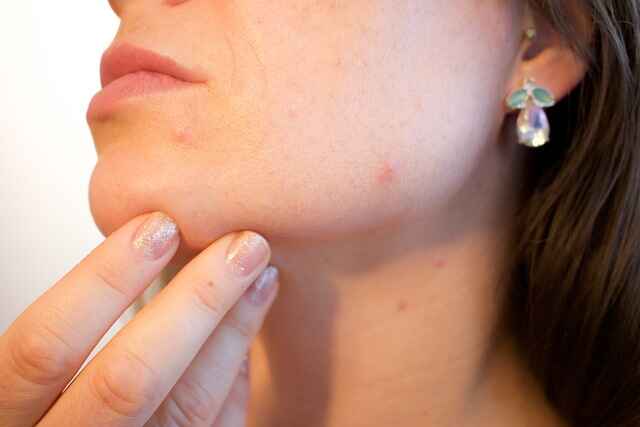What is leaky gut Syndrome?
The term “leaky gut syndrome” refers to a digestive disorder in which the intestinal lining admits germs and poisons into circulation. It refers to an increase in intestinal permeability, which may have a role in Crohn’s disease and other disorders.
Many doctors and healthcare providers are unaware that leaky gut syndrome (LGS) is a diagnosable illness. Further research into the area, however, could help doctors better understand the causes and implications in humans. Some believe that leaky gut syndrome is caused by holes in the intestinal walls that allow bacteria and other poisons to enter the bloodstream.
Also, Read Know About DMIT: Science, Facts, Research, Uses, Applications
Causes
We have a thick intestinal lining inside our stomachs that is more than 4,000 square feet in size. It creates a strong barrier that controls what enters the bloodstream when it’s working properly. Large cracks or holes in a poor gut lining can let partially digested food, poisons, and bugs pass through to the tissues below. Inflammation and modifications to the gut flora (normal microorganisms) may result from this, and these issues may extend beyond the digestive tract. The research world is booming today with studies showing that modifications in the intestinal bacteria and inflammation may play a role in the development of several common chronic diseases.
Since this barrier is not fully resistant, we all have some degree of leaky gut. Although some of us may be more susceptible to alterations in the digestive system due to a genetic predisposition, our DNA is not the only culprit. The main cause of intestinal inflammation may be today’s lifestyle. There is growing proof that the Indian diet, which is high in sugar and saturated fats but poor in fibre, may be the cause of this process. Stress and excessive drinking appear to disrupt this balance as well.
Symptoms
- Changes in the digestive tract, such as bloating, diarrhea, and irritable bowel syndrome
- Headaches and exhaustion
- Confusion and difficulty focusing
- Acne, eczema, and rashes are examples of skin problems.
- Food intolerances or allergies
- Attention deficit disorder, depression, and anxiety are examples of mental health problems.
- Immune system deficiency
- nutritional deficiencies
- skin problems, such as acne or eczema
- joint pain
- inflammation

Risk factors
The following factors lead to Leaky Gut Syndrome:
- Nutritional deficiencies and poor diet
- Stress
- Excessive alcohol intake
- Non-steroidal anti-inflammatory drugs (NSAIDs)
- autoimmune disorders, such as lupus
- diabetes
- stress
Also, Read Understanding Diabetes: What is Diabetes? Types, Causes, Symptoms, Management
Diagnosis
Clinical research is now looking at several test types to check for signs of Leaky gut syndrome in patients. Tests include:
- Superior Food Tolerance Blood Test Profile (IgG Based): This test determines whether the individual is allergic to certain foods. It is also advantageous because food allergies and intolerances are difficult to distinguish.
- Food allergy testing: A food allergy test can assist assess current IgE levels. These levels identify allergies to specific foods.
- Microbiome testing: Microbiome testing includes the following procedures:
- Analysis and Report on the Super Gut
- Personal consultation with a medical specialist and study of the report
- Prebiotic and probiotic recommendations based on individual cases
- At-home metabolic test: This test includes assessing the resting metabolic rate (RMR), maximum oxygen volume, and lactate threshold at home.
Treatment
There is no conventional treatment because many doctors do not believe leaky gut to be a legitimate medical condition. To attain the desired recovery, patients with Leaky Gut Syndrome are encouraged to adopt the following dietary and lifestyle changes:
- consuming prebiotic fiber-rich foods such as veggies and whole grains
- consuming less meats, dairy products, and eggs
- limiting the use of added sugar and artificial sweeteners
- Exercise regularly
- Getting adequate sleep every night
- decreasing stress and avoiding needless antibiotic use
- quit smoking
Diet
What you should eat
- Vegetables like Broccoli, carrots, brinjal, beetroots, spinach, ginger, mushrooms, potatoes
- Fruits like Grapes, bananas, coconut, papaya, lemons, and limes, pineapples, oranges, and strawberries
- Chia, flax, and sunflower seeds that have sprouted
- Gluten-free grains such as amaranth, brown rice, and gluten-free oats
- Good fats like Avocado, coconut, and almond oils
- Fatty fish, such as salmon, tuna, and other omega-3-rich species
- Meats and egg
- Spices and herbs
- Dairy products like Buttermilk and Greek yogurt
- Soups and beverages like Bone broth, coconut milk, teas, and nut-based milk
- Raw nuts like Peanuts and almonds
What you should not eat
- Items made from wheat, such as bread, pasta, wheat flour, and couscous
- Gluten-rich grains like barley and oats
- Processed meats and cold cuts
- Baked items including cookies, pastries, and cakes
- Snacks like crackers and granola bars
- Junk food or fast food
- Artificial sweeteners Dairy products such as milk, cheese, and ice cream
- Refined oil
- Sauces and sauces containing soy, hoisin, teriyaki, and other flavours
- Alcohol and carbonated beverages
Prevention

- Reduce your consumption of refined, processed foods and sugary items.
- Consider fermented foods in your diet, such as yoghurt, kimchi, and kefir, to mention a few.
- Increase your consumption of prebiotics and probiotics to maintain healthy gut flora.
- Reduce stress by meditating, doing yoga, deep breathing, or engaging in any sort of exercise.
- 7-8 hours of unbroken sleep is mandatory.
- Certain lectins are poisonous and, if ingested in excess and raw form, can increase intestinal permeability. Lectins are most abundant in beans and grains and can be removed by cooking at high temperatures.
- Butyrate is a short-chain fatty acid with anti-inflammatory and anti-cancer properties that help with digestion and act as an intestinal barrier.





